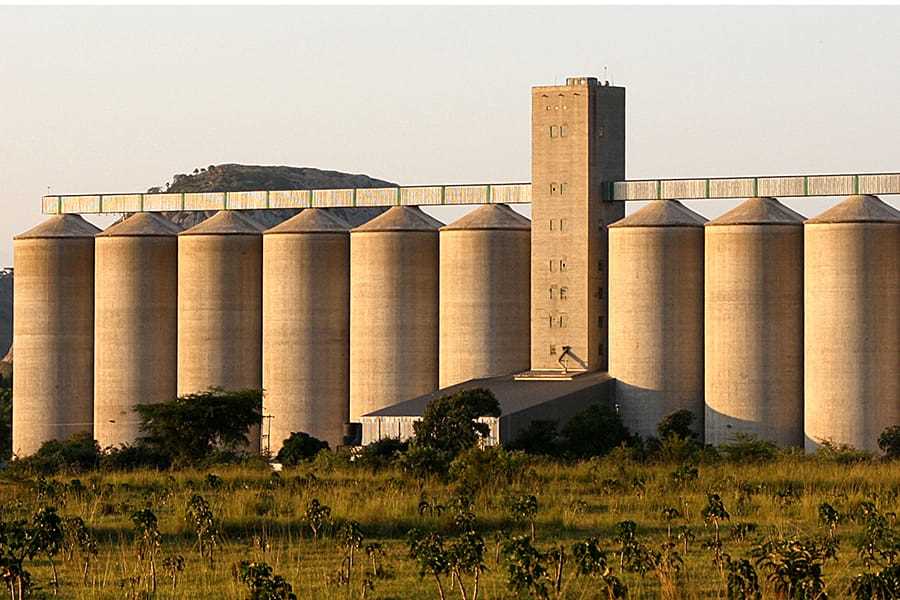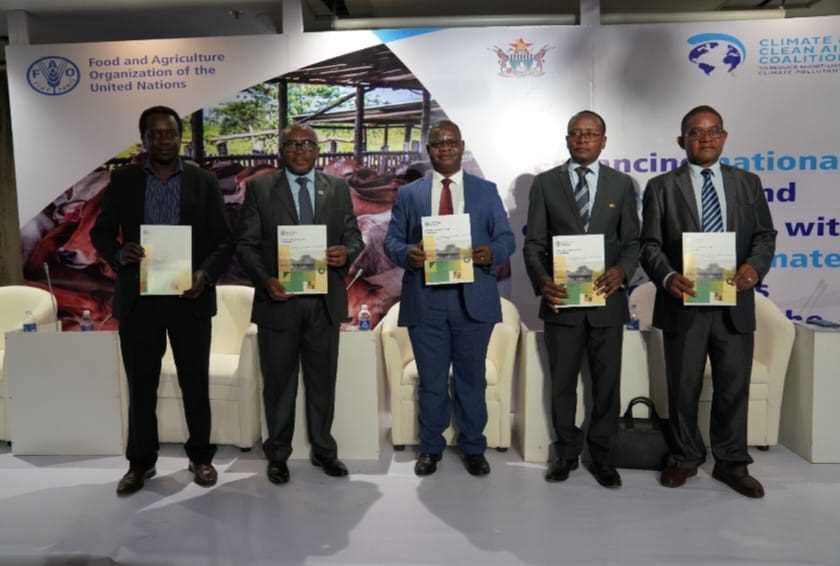
Employment Creation
Over the past five years, Zimbabwe’s employment statistics have reflected both growth and ongoing challenges. According to Zimstat the employment-to-population ratio (EPR) stood at 34.9% by the third quarter of 2023, up from 34% the previous year.
This increase indicates a slight improvement in the ability of the economy to create employment opportunities for the working-age population.
The labour force participation rate (LFPR), which measures the proportion of the working-age population that is either employed or actively seeking work, also rose to 44.1% in the third quarter of 2023, reflecting a 1.5 percentage point increase from the previous year.
However, despite these gains, unemployment remains a significant issue. The unemployment rate increased to 21% in 2023, up from 19.7% in the second quarter of the same year, with a higher rate among females (23.7%) than males (19%).
Notably, Zimbabwe's informal sector continues to dominate the employment landscape, with non-agricultural informal employment increasing by 4.1% between the second and third quarters of 2023.
At the same time, employment in agriculture declined, further emphasizing the shift towards informal economic activities. Despite these challenges, Zimbabwe is making incremental progress toward improving employment opportunities, but the road to full economic recovery and job creation remains ongoing.
Chinese investments have significantly boosted employment across Zimbabwe, particularly in mining and infrastructure development.
One standout contributor is China Minmetals Corporation which has transformed its Bikita Lithium Mine project with a $200 million investment aimed at building new production lines and upgrading facilities.
This move is set to create 1,500 jobs in the near future, adding to the 1,078 local employees the company currently employs.
Of these employees, 80% are from surrounding communities such as Bikita, Gutu, and Masvingo.
The ripple effect of these investments is immense. Before the acquisition of Bikita Mining by **China Mineral Resources in 2022, the company only employed around 250 people.
Now, with a combined workforce of 2,550 employed by China Mineral Resources and its contractors, the economic benefits are being felt across entire families and communities.
Salaries have also improved; the company’s average monthly wage has risen by 55.8%, markedly improving the living standards of employees and their families.
Other companies such as Southern Mining Limited and Kamativi Mining Company (KMC) are also playing a key role in employment creation.
Southern Mining, one of the largest coal producers in Zimbabwe, employs 1,200 workers and produces 400,000 tons of coking coal annually.
KMC, which restarted mining operations in the previously dormant Kamativi region, has generated over 300 direct jobs and more than 1,000 indirect jobs through subcontractors.
These companies have also contributed to economic stability by offering competitive wages, healthcare, and training opportunities, fostering sustainable development in local communities. The overall employment impact reflects the success of China’s investment model in promoting local economic growth and reducing poverty in Zimbabwe.
2. Impact on education
Education in Zimbabwe has received a significant boost thanks to Chinese companies operating in the country, many of which have made education a priority in their corporate social responsibility (CSR) initiatives. **Huayou Prospect Lithium** has led the way by investing approximately $220,000 to improve educational facilities in local communities. Their contributions include the donation of 5,500 textbooks, 400 desks and chairs, and the construction of classrooms and teacher apartments. These efforts have greatly enhanced the quality of education and infrastructure in the areas surrounding their operations.
One of the most impactful projects is Kamativi Mining Company’s refurbishment of classrooms at Kamativi Primary School. After noticing the dilapidated state of the classrooms, which hindered students’ learning, KMC executives launched an intensive renovation effort that restored the school to a condition that allows for a better educational experience. The project has improved both the physical learning environment and students' enthusiasm for their studies.
Related Stories
Sinomine, another major player, is building four new classrooms at Mara Primary School in Masvingo North, providing much-needed infrastructure improvements at no cost to the school. Additionally, Southern Mining Company has gone beyond the traditional support for education by donating over US$500,000 to establish a community library in Hwange. The library, which can accommodate around 120 people, features both traditional and digital learning spaces, including eight computers and other electronic devices to support a modern educational experience.
Through these projects, Chinese companies are not just improving the physical infrastructure of schools but also fostering a brighter future for Zimbabwean children by ensuring they have access to quality education and resources.
3. Clean Water for Communities
In Zimbabwe, water scarcity has been a persistent issue, especially in rural areas where communities often struggle to access clean and safe water. Chinese companies operating in Zimbabwe have recognized this need and have launched extensive water projects to provide relief to affected areas.
One of the key initiatives is the "Water is Life" project, which has been spearheaded by several Chinese firms, including Bikita Lithium Mine, Sabi Star Mine, and Southern Mining. These companies have drilled numerous wells across rural communities, ensuring a steady supply of clean water. This initiative has provided a vital lifeline for households facing the dual challenge of drought and unreliable water infrastructure.
Sinomine, a major player in Zimbabwe’s mining sector, has taken a lead role in water provision efforts. The company has invested in the construction of 36 wells in the Bikita West, Masvingo North, and Masvingo West regions, spending approximately $104,000 on these projects. These wells supply clean drinking water to thousands of people and improve the overall sanitation of the communities. Given the growing threat of drought in recent years, Sinomine has committed to continuing these efforts, with plans to construct additional wells to ensure water security in drought-prone areas.
In addition to the wells, Max Mind Investment has built a clinic with access to water and electricity in Sabi Star, reducing the distance residents previously had to travel for healthcare and water access. This effort exemplifies the holistic approach Chinese companies are taking to enhance community well-being.
By addressing the fundamental need for clean water, Chinese firms are playing a critical role in improving both health and living conditions in Zimbabwe’s most vulnerable communities.
4. Infrastructure Development
Zimbabwe’s infrastructure has long been in need of upgrades, and Chinese companies have stepped in to fill that gap, contributing to significant improvements in roads, electricity, and community facilities. These efforts are transforming the country’s rural and urban landscapes, linking previously isolated communities to vital resources.
One of the standout contributions comes from Sinomine, which invested $22 million to construct a 132 KV high-voltage transmission line stretching from Tokwe to Bikita via Masvingo. This 110-kilometer power line, completed in early 2024, has brought electricity to rural areas, including schools, clinics, and businesses, dramatically improving the quality of life for residents and supporting local economic growth.
Chinese companies have also been active in road construction. China Mining Resources repaired a 7km road between Bikita and Gutu in June 2023, while Southern Mining expanded and cleaned 25km of residential roads in local villages. These infrastructure projects have made travel easier for residents and opened up new economic opportunities by connecting communities to trade hubs and essential services.
Max Mind Investment took on the renovation of a 37km road leading to their mining site, widening and smoothing what was once a narrow and potholed path. These upgrades have made the road safer and more accessible for both local villagers and company workers, ensuring a smoother flow of goods and services.
Through these efforts, Chinese firms are playing a pivotal role in strengthening Zimbabwe’s infrastructure, enabling sustainable development and laying the groundwork for future prosperity.
5. Contribution to Food Security:
With Zimbabwe grappling with food insecurity exacerbated by recurrent droughts, Chinese companies have stepped up to support food security initiatives across the country. Their involvement has ranged from providing immediate relief to making long-term investments in agriculture.
In June 2024, Kamativi Mining Company coordinated the delivery of 60 tons of relief food to the Kamativi community, benefiting over 2,700 people. This initiative came in response to a severe drought that drastically reduced food production across Zimbabwe. KMC’s efforts were warmly received by both the local community and the government, with the company being praised for its proactive role in alleviating hunger.
Beyond emergency relief, Chinese companies have made significant contributions to Zimbabwe’s agricultural development. Prospect Lithium Zimbabwe Limited, for instance, has invested in dam renovations that help farmers better store and manage water for agricultural use, ensuring a more stable food production cycle in drought-prone areas. PLZ has also sponsored local agricultural exhibitions, providing a platform for farmers to showcase their products, exchange knowledge, and access new technologies that enhance productivity.
Moreover, several Chinese firms, including Bikita Lithium Mine, have launched income-generating projects that empower local communities. These initiatives allow residents to earn income by selling decontamination powder and other agricultural products, providing a sustainable source of livelihood that supports local food production.
By combining short-term relief with long-term agricultural investments, Chinese companies are making significant strides in ensuring food security and supporting Zimbabwe’s agricultural resilience.
These expanded features provide a detailed look into the multifaceted impact of Chinese investments on employment, education, water access, infrastructure development, and food security in Zimbabwe.




















Leave Comments